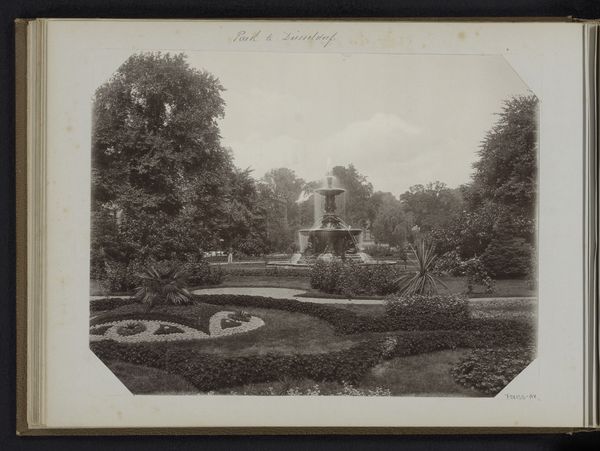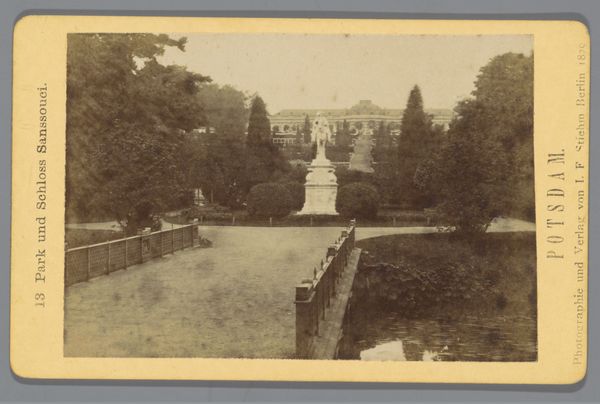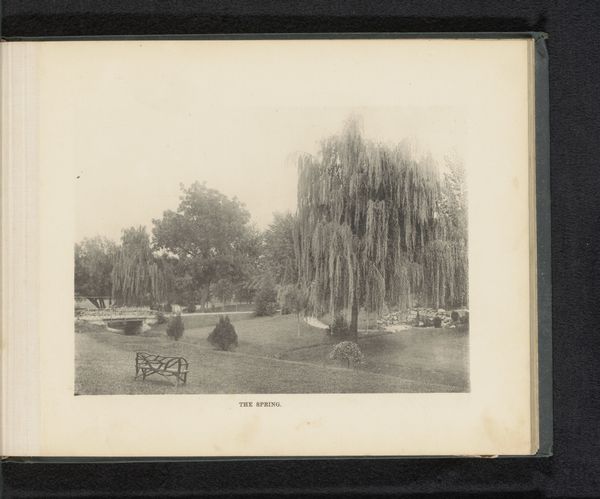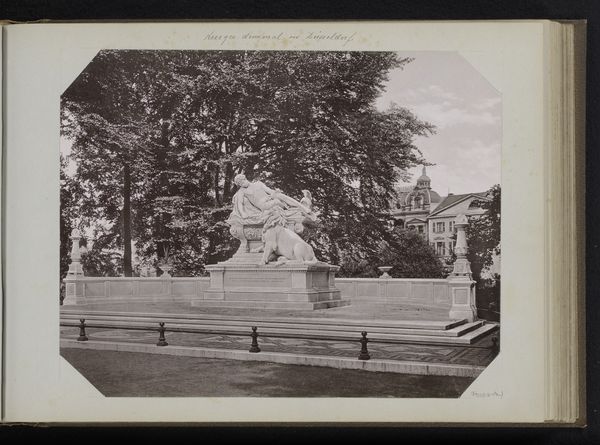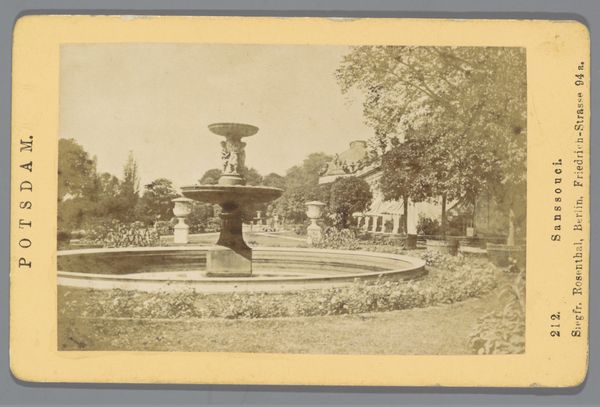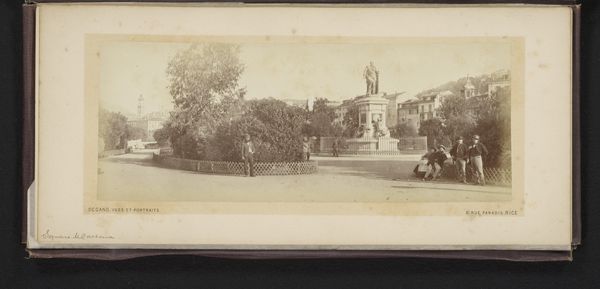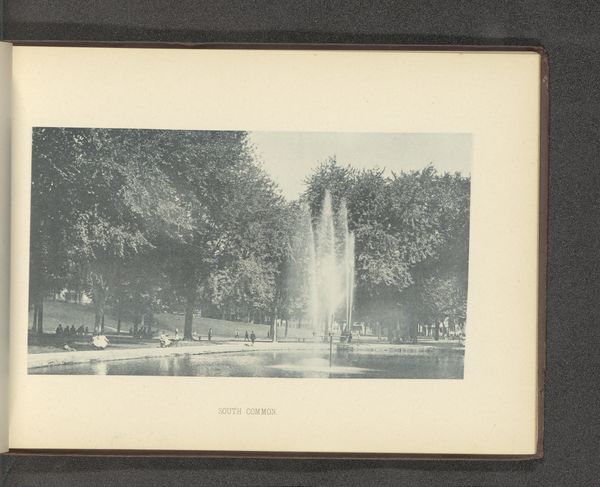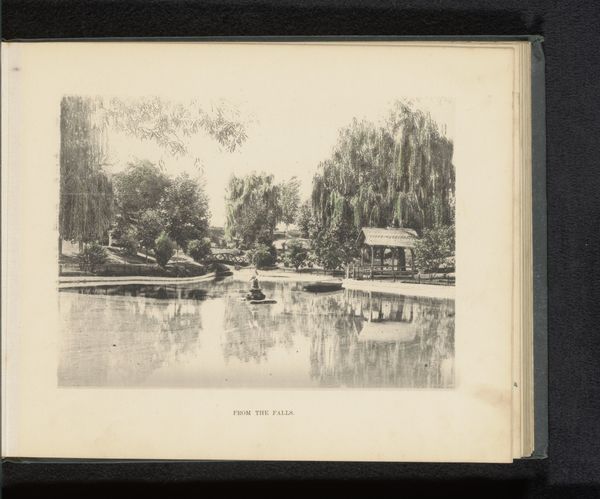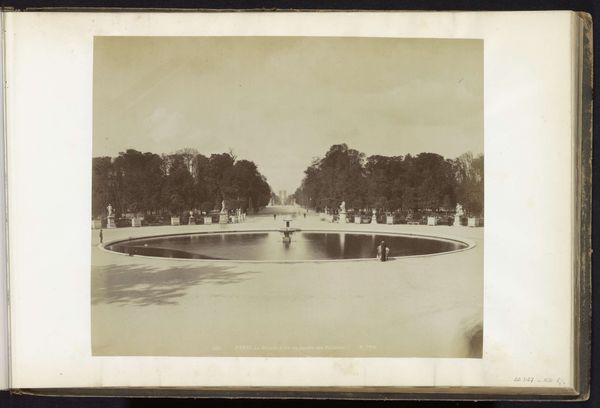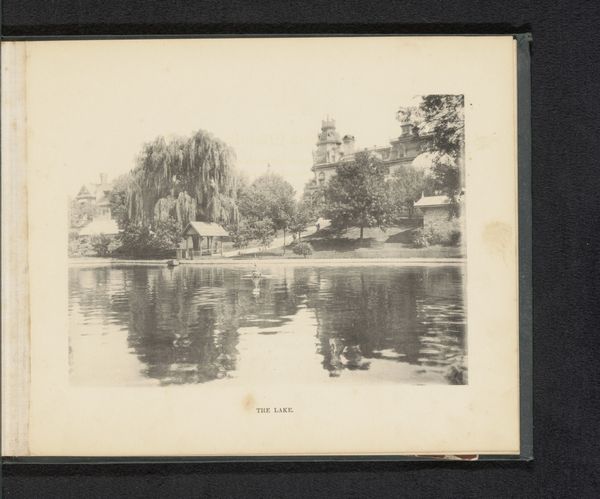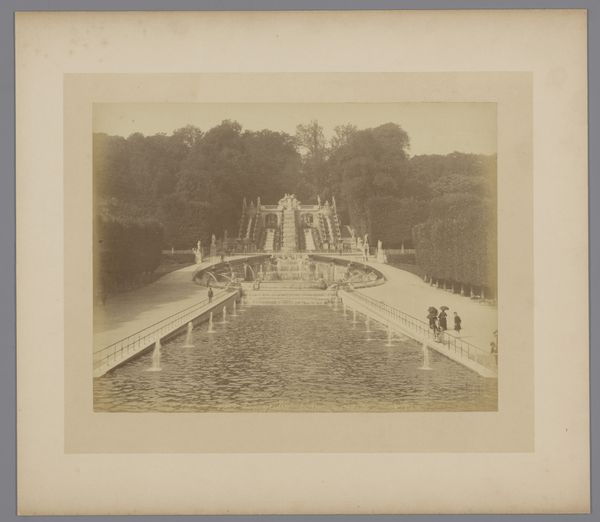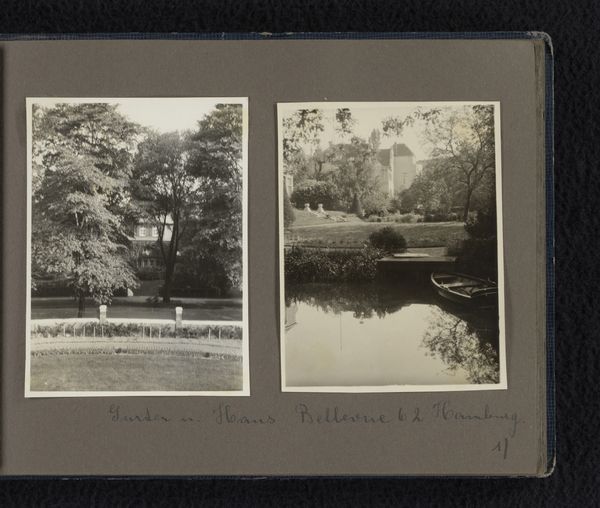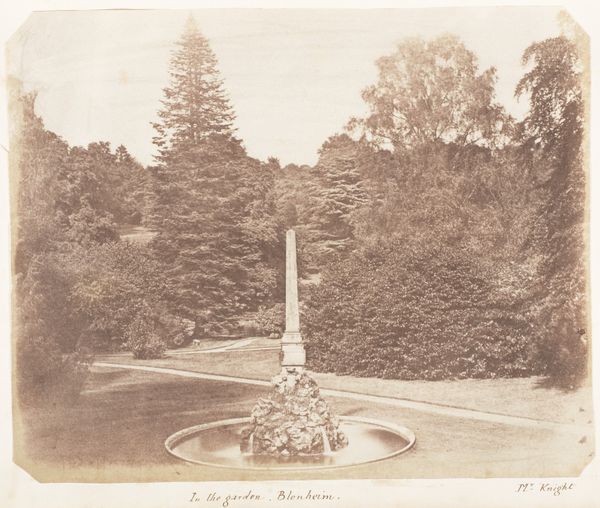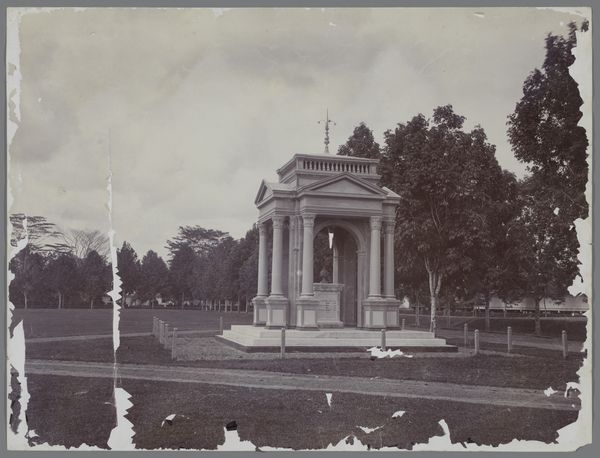
Gezicht op stadspark Warmer Damm met een standbeeld van Keizer Wilhelm I te Wiesbaden 1890s
0:00
0:00
anonymous
Rijksmuseum
Dimensions: height 258 mm, width 355 mm
Copyright: Rijks Museum: Open Domain
This photograph captures the Warmer Damm park in Wiesbaden, featuring a statue of Kaiser Wilhelm I. It's one of many such images, likely made for mass consumption, using readily available photographic materials and reproduction techniques. The process is key here: the photographer, whomever they were, made a fleeting moment permanent through a chemical reaction on a treated surface. This contrasts with sculpture, a slow, additive process, often involving laborious carving or casting. The resulting statue embodies the labor and materials used in its creation, like bronze or stone. The photograph democratizes this kind of monumentality, and allows for the dissemination of nationalistic imagery on a scale that would otherwise be impossible. It collapses time and space, delivering a potent symbol of authority to a wide audience. Considering both the photograph and the statue, we realize that the power of images isn't just in what they show, but also in how they are made and shared. This photograph challenges our traditional view of monuments, it allows us to appreciate the ways in which photography brought imagery to the masses.
Comments
No comments
Be the first to comment and join the conversation on the ultimate creative platform.
